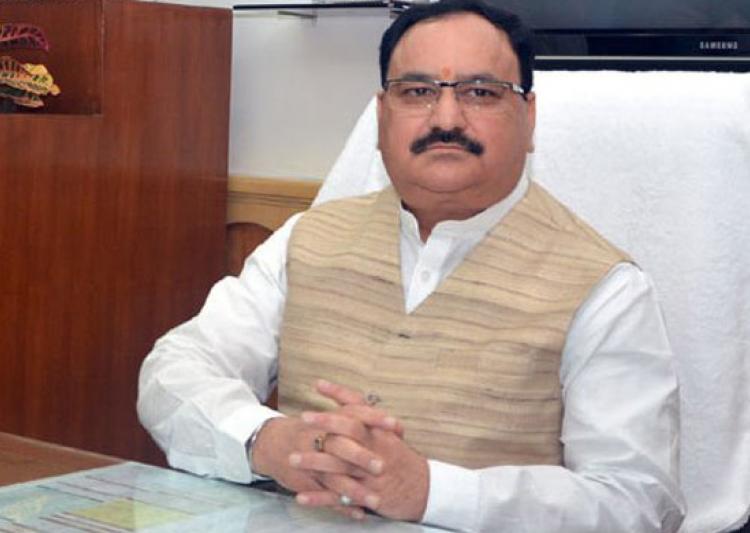
 The introduction of new vaccines into the Universal Immunisation Programme (UIP) has been one of the major policy decisions in the Indian public health system, which reflects the government’s will to reach out to the under-privileged and ensure that the “children of this country have the best chance to survive and thrive”, says Minister of Health and Family Welfare JP Nadda.
The introduction of new vaccines into the Universal Immunisation Programme (UIP) has been one of the major policy decisions in the Indian public health system, which reflects the government’s will to reach out to the under-privileged and ensure that the “children of this country have the best chance to survive and thrive”, says Minister of Health and Family Welfare JP Nadda.
In an article published on the website of Press Information Bureau (https://pib.nic.in/newsite/efeatures.aspx), Nadda says that the introduction of new vaccines is key to reducing childhood and infant mortality and morbidity in the country.

According to the government data available, although there has been a consistent decline in infant mortality rate and under-five mortality rate in India, the country-wide average of Infant Mortality Rate (IMR) of 39 deaths per 1,000 live births and Maternal Mortality Rate (MMR) of 167 per 1,00,000 live births, falls short of the set targets
Vaccination is seen by the government as a major intervention to further reduce IMR and MMR.
“In the last two years, through the UIP, we saw the introduction of the Inactivated Polio Vaccine (IPV), Rotavirus vaccine (RVV) against diarrhoea, and the measles-rubella (MR) vaccine, to protect against both measles and rubella. The latest weapon in the arsenal being introduced is pneumococcal conjugate vaccine (PCV),” Nadda adds.

On the recommendations of the World Health Organisation (WHO), over 130 countries have introduced PCV as part of their childhood immunisation programmes, he informs.
“This vaccine provides protection against one of the most common causes of pneumonia”a bacterium called pneumococcus. This bacterium also causes other diseases such as ear infections, meningitis and blood infections, with some of these resulting in death or serious disabilities.”
Highlighting why it was important to include PCV in India’s Universal Immunisation Programme, he says, “This vaccine has long been available in the private sector in India, so children of wealthy families who could afford it could be protected. But today, by introducing it in the UIP, we are ensuring that this vaccine reaches all children, especially those who need it the most, the underprivileged and underserved.”
In India, close to 1.8 lakh child deaths are reported due to pneumonia.
“It is our duty to deliver on the promise and save the lives of tens of thousands of children in this country who dont live to see their fifth birthday due to preventable diseases. To achieve these ambitious targets, we cannot afford to slow down. Let us immunise and give our children the protection they need to fight off deadly diseases and reach their full potential,” Nadda says.
Be a part of Elets Collaborative Initiatives. Join Us for Upcoming Events and explore business opportunities. Like us on Facebook , connect with us on LinkedIn and follow us on Twitter , Instagram.












